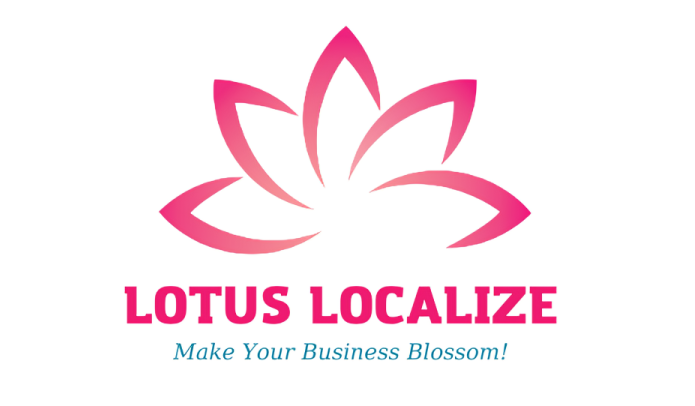
E-commerce localization: Key strategies for global market penetration
As we know, businesses are no longer confined by borders. E-commerce, in particular, has become a powerful vehicle for reaching customers across the globe. But with this global reach comes the need for a tailored approach—enter e-commerce localization. This strategy goes beyond mere translation, allowing businesses to create a shopping experience that resonates with diverse audiences by aligning with their local languages, cultures, and consumer behaviors. In this article, we’ll explore what e-commerce localization entails, why it’s essential, the challenges it faces, and effective strategies for implementing it successfully.
What is e-commerce localization?
E-commerce localization is the process of adapting your online store to meet the language, cultural, and legal expectations of customers in different regions. It involves translating content, including product descriptions, user interfaces, and customer support, into the local language. But localization is more than just translation—it’s about customizing the entire shopping experience to feel native to each market. This might include modifying the design layout, color schemes, and even imagery to reflect local preferences and cultural norms.

Localization also extends to technical aspects, such as adapting payment methods, adjusting shipping options, and ensuring compliance with local regulations. For instance, while credit cards may be the dominant payment method in the U.S., many Asian markets prefer mobile payments or cash on delivery. By localizing these critical touchpoints, businesses can provide a seamless shopping experience that increases customer satisfaction and drives conversion rates in different markets.
Read more: 6 benefits of localization for boosting business growth
Why is e-commerce localization essential?
As global competition intensifies, simply having an online presence is no longer enough to capture the attention of international customers. E-commerce localization plays a vital role in connecting with global audiences by tailoring content to their specific needs. From language to currency and culturally relevant content, localization helps businesses build trust, improve engagement, and ultimately grow in new markets.
Here are the key benefits of e-commerce localization:
- Deeper customer connection: Localization allows businesses to address customer preferences, such as language and culture, making the audience feel understood and valued.
- Higher conversion rates: When customers see that their specific needs are met, they are more likely to trust the brand, leading to better engagement and increased conversion rates.

- Improved search engine visibility: Localizing content improves SEO in international markets, as search engines like Google prioritize location and language-relevant content.
- Boosted organic search rankings: By using region-specific keywords, meta tags, and URLs, businesses can improve their rankings in local search results, driving more traffic to their website.
- Enhanced brand credibility: Localized content builds brand awareness and credibility in new markets, making it easier to establish a presence and gain market share.
What challenges does e-commerce localization encounter today?
E-commerce localization offers numerous benefits, but it also presents several challenges that businesses must overcome to succeed in global markets. These challenges range from managing multiple localized versions of an online store to ensuring legal compliance and understanding cultural differences. Navigating these obstacles is essential to creating a seamless and effective global e-commerce experience.
Here are the key challenges of e-commerce localization:
Managing multiple localized versions:
Each localized site requires its own translations, cultural adaptations, and technical configurations.
→ This process can be resource-intensive and time-consuming, adding complexity to maintaining consistency across different markets.

Legal and regulatory compliance:
Different countries have varying laws, such as data protection regulations (e.g., GDPR in Europe) and consumer protection laws.
→ Businesses must adapt their practices, such as return policies and customer service, to meet these requirements or risk facing fines and legal issues.
Navigating cultural differences:
What appeals to one market may not resonate in another.
→ Marketing messages, product designs, and promotional strategies need to be adapted to fit local consumer preferences, requiring extensive market research.
These challenges highlight the importance of strategic planning and deep market insights to ensure that localized e-commerce efforts are both effective and compliant across different regions.
Read more: Transcreation: Transforming your content for diverse cultures
Effective strategies for e-commerce localization
To successfully localize your e-commerce platform, it’s essential to adopt strategies that go beyond basic translation. Effective localization involves a comprehensive approach that includes cultural, technical, and legal considerations to create a seamless user experience and foster trust with customers across different markets. Here are some key strategies for successful e-commerce localization:
Cultural adaptation
Localization is not just about translating content; it involves aligning your marketing messages, product offerings, and website design with the cultural norms and preferences of your target audience.
For example, minimalist designs may appeal to Western consumers, while more vibrant, colorful layouts may be favored in regions like Asia or the Middle East. Imagery, slogans, and product descriptions should reflect the cultural context to resonate with local customers. Tailoring content to fit the cultural nuances of each market can significantly enhance user engagement and conversion rates.
Localized SEO
Optimizing your website for search engines in each target region is essential for improving visibility and attracting organic traffic.
This involves using region-specific keywords that local customers are likely to search for, adjusting meta tags and descriptions, and creating content that addresses the needs and interests of each market. Implementing country-specific domains or subdomains, such as .uk for the UK or .jp for Japan, can further boost your site’s search engine rankings and make it easier for local users to find your brand.

Localized payment options
Offering a variety of payment methods that are popular and trusted in each region is key to reducing cart abandonment and increasing sales.
Different markets have different preferences for payment methods. While credit cards may be widely used in North America and Europe, many consumers in Asia prefer mobile payment options like Alipay or WeChat Pay. Integrating these options into your platform creates a smoother, more convenient shopping experience for international customers.
Local-language customer support
Providing customer service in the local language and during local business hours is crucial for building trust and credibility in new markets.
This could involve having dedicated customer support teams for each region or using AI-powered chatbots capable of handling inquiries in multiple languages. Offering support in the local language helps ensure that customers feel understood and valued, improving their overall satisfaction and fostering long-term loyalty.
Compliance with local laws
Staying compliant with legal and regulatory requirements in each market is critical to avoiding potential legal issues and maintaining a positive brand reputation.
Different countries have varying laws, such as data protection regulations like the GDPR in Europe and consumer protection laws that dictate return policies, warranties, and customer service practices. Adapting your operations to comply with these regulations helps you avoid fines, legal disputes, and damage to your brand’s image.
By implementing these strategies, you can create a localized e-commerce platform that not only meets the needs of your global customers but also builds trust, improves engagement, and boosts sales across different markets.
All in all, in today’s competitive landscape, those who embrace e-commerce localization will stand out as leaders in their industry, paving the way for sustainable growth and long-term success. Whether you’re entering a new market or refining your approach in existing ones, localization offers the key strategies needed to connect with diverse audiences and turn global opportunities into tangible results.
The world is your marketplace—are you ready to localize and lead?
For expert advice and tailored localization service that ensure no overload or negligence, contact us today at our hotline or Whatsapp: + 84 866 224 968 or visit the websites: dichthuathoasen.com/en/. Let Lotus Localize accompany you in bringing products, people, and culture to the global stage, and together, we’ll create miracles!
QUALITY PROMISE
At Lotus Localize, we are dedicated to delivering high-quality services and ensuring the utmost satisfaction in every client project. Our team of translators and staff consistently exert effort and adhere rigorously to quality management procedures. This commitment guarantees that each project progresses seamlessly, meets deadlines, and exceeds our clients' expectations.












